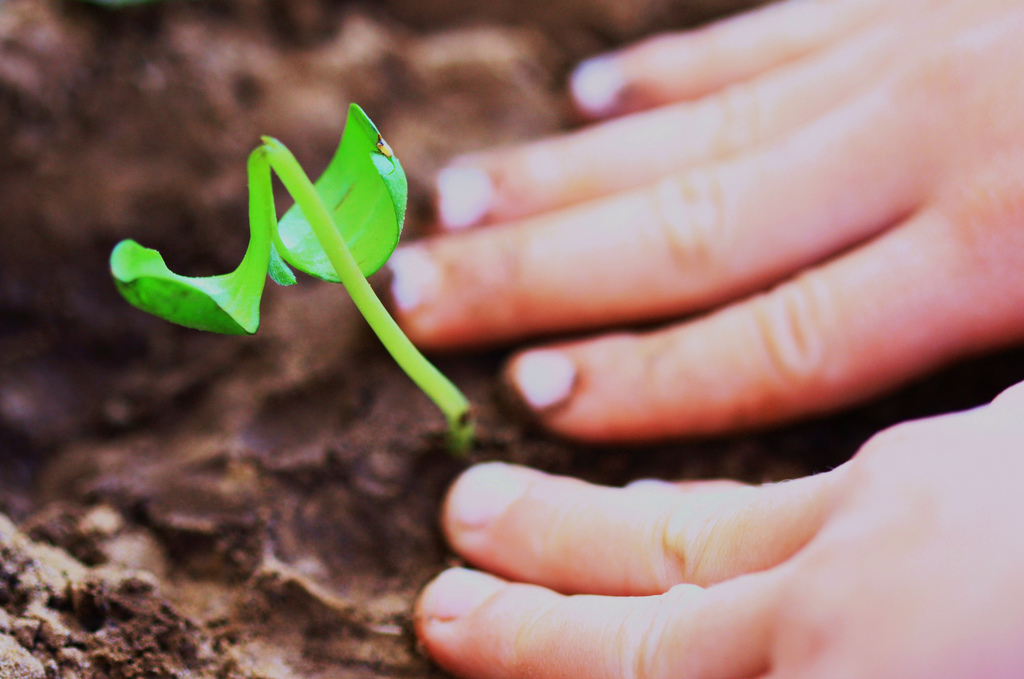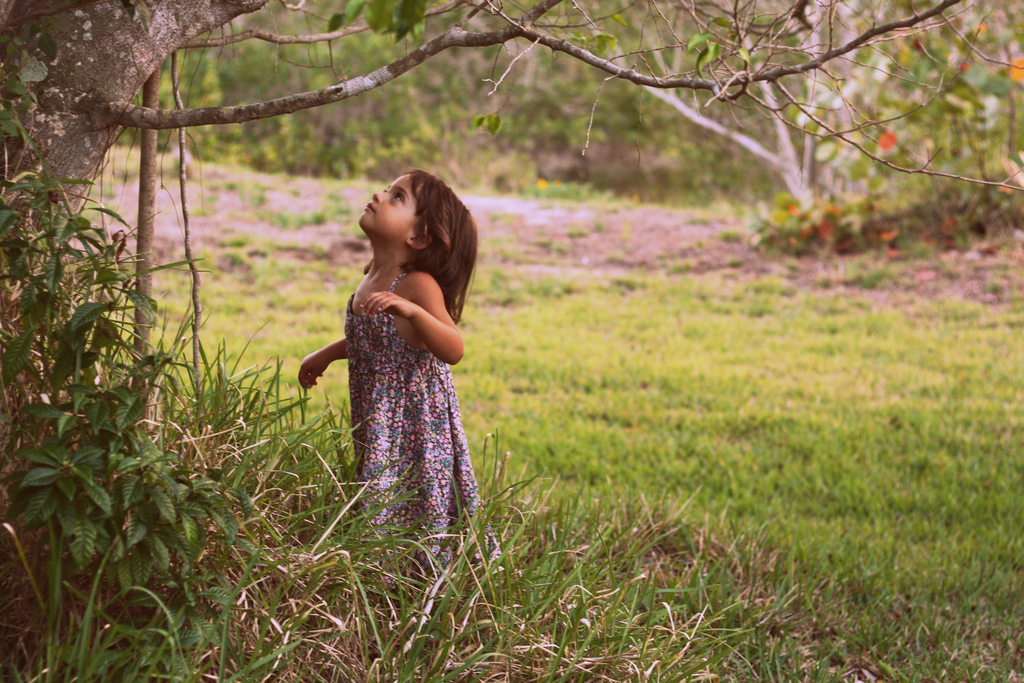I’m just an average Muslimah…What can I do to protect the Earth?
What can the average Muslimah do to protect the Earth?
So, you’re not quite ready to leave your home to live in a tree house, eat grubs, and use only the light of the sun for energy? That’s ok, there are still many ways that you can stop contributing to destruction of the earth, and actively work towards protecting it.
Doing deeds to protect the environment is a way of getting hasanat (good deeds). It is an action that may not be seen or recognized by others, but doing it will raise your status with Allah (subhannahu wa ta'ala). “Being green” is an excellent opportunity to strive for Allah’s (subhanahu wa ta’ala) mercy.
There are many ways that we can be an earth steward, be green, and protect the earth and its environment. In my experience as an educator and working directly in conservation, I find that many people are not clear on the issues affecting the earth. So, first I suggest raising you and your family’s consciousness about what is happening with the environment. Read books and articles about current events in science, and on issues such as global warming, deforestation, and over fishing. Secondly: stop waste! Stop wasting food, natural resources, space, energy, and time. Time to lighten the load we put on this earth and strengthen families and our communities with simple acts, with the intention of ibadah.
Teach children to love and revere the earth and its resources
Teach your children to love and respect the earth by integrating earth friendly practices and consciousness into your daily routines. Children are natural scientists that love to explore their world with wonder and sincere interest. Use this natural curiosity to teach them when they are very young to respect the earth and its resources. It will instill a lifelong love of the earth and make future protectors of it.
At an early age, allow children to play outside and explore. Let them learn with all five senses. Even taste, sampling a blade of grass or giving a pine cone a lick won’t hurt them. Let them walk in the grass barefoot and play by the edge of the river looking for signs of life. Take them out at night and let them listen for bats, owls, or other animals that are active in the evenings. Show them the sunset before Fajr prayer. Take them to see the new moon and the waning moon before, during, and after Ramadan. Let them play in the rain and smell the beautiful scents of spring. Let them sit under the shade of a giant old tree feeling its strength. Experiencing the wonders of Allah’s (subhanahu wa ta’ala) creation can happen at the earliest age. If children understand that they are one of the creations on this earth, and a part of the grand cycle of life, Insha’Allah they will care about protecting it. If they never get a chance to experience the wonders of this amazing planet first hand they may feel detached and not concerned with what happens to it.
As children grow, teach them to respect the plants and animals on the earth. Visiting natural parks and protected wildlife sanctuaries can be an excellent learning experience. These large areas of land that have been set aside, preserved, and maintained give evidence to the history of ecology and earth preservation. Children can have an opportunity to see animals that are steadily disappearing from our earth, natural wonders of Allah’s (subhanahu wa ta’ala) creation, and can be reminded not to take plants or animals away from their natural habitats. This concept is necessary when learning about respecting the earth. All animals and plants are important to their biological communities. Removing animals (including insects) or plants can upset the delicate balance of the ecosystem. Have them draw a picture or take a photograph of something special that they want to remember.
Visiting zoos is another good way for children to see animals close up. Teach your children to respect the animals living there. Banging on glass walls, yelling, screaming, throwing food, and making rude faces to the animals is disrespectful. Allowing children to act in this way undermines personal dignity and is distressing for animals. As Muslims we are taught to respect all life. We always remember this. If you own animals as pets or cattle teach your children to be kind to them, feed them on a regular schedule, allowing them space to run and live. Teach children similar respect for plants.
STOP WASTING
Waste happens in so many little ways. It may seem that that half a pan of beans that was thrown out, or the Styrofoam cups you used at the last gathering aren’t a problem, but they are. When we throw away good food we act as if there aren’t people starving. When we use products that aren’t biodegradable or recyclable we fill landfills with garbage. Consider that a handful of rice could keep a child alive for another few days. Don’t force yourself to eat more, but think about portions and take more notice of what your family will eat to avoid waste. You may find there is extra to share.
It saddens me to say I’ve been to the mosque on a Sunday morning to see pans of half eaten rice from the Walimah or Aqika the night before. If you have been blessed with the means to slaughter for a wedding or birth remember the Sunnah on the division of meat, and surely it wouldn’t hurt to feed the homeless in honor of your new marriage or child; Instead of feeding people who are not hungry and end up wasting food. If you are a guest, don’t be afraid to take the leftover food and eat it for breakfast or dinner. No, it is not glamorous, but alhamdulilah you will have avoided the sin of being wasteful.
“O Children of Adam! Wear your beautiful apparel at every time and place of prayer: eat and drink: But waste not by excess, for Allah loveth not the wasters.” (Surah Ar Raff 7:31)
There are many areas that we need to be conscious of, when it comes to being wasteful by excess. Below is a bullet list of ways to start being conscious of our place in this earth and do some benefit. Let’s leave every place we go to cleaner and better than when we first got there.
Curbing the consumer: In these times, the target of many marketing companies is the innocent children, whose little minds cannot process that they don’t need all of the stuff that the ads tell them they need. They will not know unless we teach them. If they get a new toy have them get rid of an old toy (or several), and do the same with their clothing. Teach them the concept of less is better (more). Don’t give them whatever they want, and once they are old enough let them earn their toys and gadgets. Ultimately, they will be happier with less stuff to clean up and will make wiser choices about the type of toys they get.
Recycle: Have kids wash out cans, and cartons, peal labels, and put recyclables into the correct container. These days recycling is much easier than when I was kid. Back then, we would gather all of our recyclables and take them to the recycling plant. Nowadays it’s often as close as your garbage can or curbside garbage pick-up!
Volunteer: Look for volunteer opportunities at your local parks. Often, there are work crews that pull invasive plants, pick up trash, and plant trees. This is something that you should do with your kids. Give them a sense of civic responsibility and a lesson about the environment.
Pick up trash: Hey! It’s the Sunnah!
Educate Yourself: Find an informative documentary that talks about the earth, plants or animals, and efforts to protect it. Check out books from the library about the history of the region that you live in, and about plants and animals that are native to the area. Go to informative websites that focus on environmental issues
Plant a native plants garden: Vegetable gardens are great, but also consider planting a native plants garden. After researching about native plants, plant some! Consider having your yard certified as a natural habitat by a local fish and wildlife agency. This will give your children (and you) a chance to work with the soil and leave something beautiful to be enjoyed in all seasons. If you don’t have a yard there are often community gardens that you can request a plot in.
Shop wise: So many things to buy, buy, buy, buy, but where, where, where will you put it all? Teach kids a valuable lesson about consumerism. Buying ability makes people feel powerful, but empower yourself to buy products that are packaged in biodegradable packaging. Reduce the amount of needless buying. Buy household products that say they are “earth friendly” and recyclable. Read labels carefully and never hesitate to research a products environmental record.
Food: The food choices we make are so very important to the environment as well as our and our children’s well-being. Buy organic and buy local. Although there is much debate, there really should be none. Foods that are not organic have been sprayed with pesticides that have been proven to cause cancer. Also non-organic foods are likely to be GMO (Genetically Modified). Milk and meats that are not organic have often been treated in inhumane ways and fed a steady diet of antibiotics. Our children need us to make wise decisions about food for them. Organic is often more expensive (not always). Organic farming practices have been proven to be better for the earth, and the foods are much healthier for our children. [1]
Halal food choices should be animals that are free range and fed organically to meet the requirements of Zabiha.
This is written from the viewpoint of a person living in the “1st” world. Everyone may not have the same access and availability. It is also important to know that people from many indigenous cultures worldwide already implement earth friendly practices as a way of life, that is part of their traditions
Whatever we do, our children see us doing it. Just like they see us making our salaat and reading the Quran, they can see us making wise decisions that impact the earth in healthy ways. How will you begin to protect the earth?
References:
[1]http://www.organic.org/articles/showarticle/article-206
Umm Yacoubi is a regular writer and contributor to Habibihalaqas, a web portal that provides resources for-sisters, by-sisters on a variety of Islamic subjects.
Photo credit from YouthfulSins and Pink Sherbet Photography


